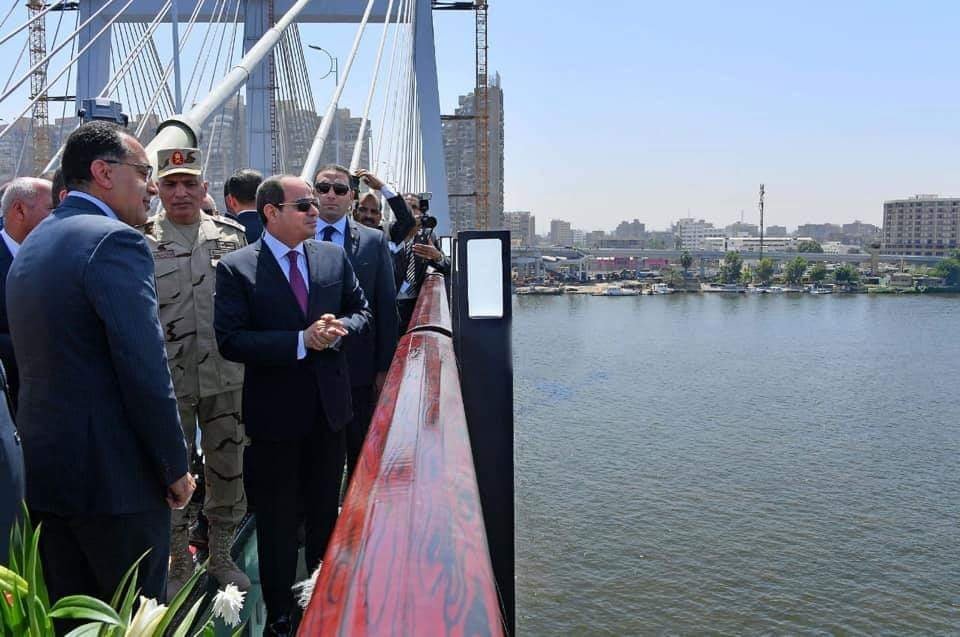President Abdel Fattah El-Sisi inaugurated on May 15 Rod El Farag Axis Bridge – or “Tahya Misr Bridge,” setting a new Guinness World Record for being the widest cable-stayed bridge with a width of 67.36 meters, Invest-Gate reports.
With investments hitting almost EGP 170 bn, the national project was designed and constructed by Egypt’s Arab Contractors, and is meant to ease traffic congestion in Cairo, while linking its eastern edge to the country’s far north without passing through the heart of the capital, according to a recent presidential statement.
Passing over the Nile River, the bridge comprises six lanes in each direction and spans 540 meters long. It comes as part of a comprehensive plan to create a national road network that covers 8,000 kilometers across the country, the statement added.
Around 4,000 engineers and workers took part in the Rod El Farag road project, which was carried out over  four years by a consortium of local firms under the supervision of Armed Forces Engineering Authority (AFEA).
four years by a consortium of local firms under the supervision of Armed Forces Engineering Authority (AFEA).
El-Sisi attended the inauguration of Tahya Misr Bridge, in the presence of Prime Minister Mostafa Madbouly, Presidential Adviser for National and Strategic Projects Sherif Ismail, Transport Minister Kamel El Wazir, among a number of high-ranking state officials.
On May 5, the Egyptian president opened a total of 12 mega national road projects, connecting Sinai to the Nile Delta, a step which comes under the country’s pursued Sinai Peninsula development project, according to an earlier statement.
The new developments include four tunnels in North Ismailia and Port Said, in addition to three floating bridges, two of which are in Sarabium Zone in Ismailia and another one, named “Martyr Ahmed Omar Shabrawi Bridge,” in Suez. All projects are aimed at easing the transition from and to Sinai.
Presidential Spokesman Bassam Rady said two of the four tunnels are located in North Ismailia and are executed under the Suez Canal. They are deemed the biggest in the history of Egypt and worldwide, in terms of lengths and diameters, the workload, and the record time for execution. He added that each tunnel will accommodate the crossing of 50,000 vehicles daily.